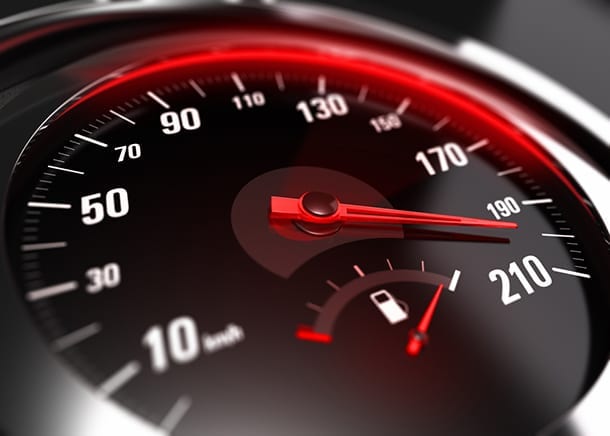
Backseat drivers beware: Speeding doesn’t work
We have a backseat driver in our family.
A small, Batman costume clad, louder than the max radio volume kind of backseat driver.
Not surprising with such super heroes is that speed is of the essence and legal driving pace is never fast enough. Often our car is filled with shouts of “You’re too slow!”, “The other cars are beating us”, and my personal favourite “The bad guys are going to catch us”. As can be expected when living with a small person, our family is always late. It doesn’t seem to matter what time we wake up, when we leave, what we do, we are inevitably always chasing the clock. So the constant heckling can be very persuasive. Checking around the 360 office, rushing out the door seems to be a common occurrence – children or not.
Research shows that for many people in this situation, we try to save the minutes by speeding. You know, the under 10km over kind of speeding that we think we can “get away with”. But does that actually help? Does it actually get you where you’re going sooner?
The general consensus is that speeding doesn’t work. Just as rushing to sign up for car finance can have long term consequences, so can rushing on our roads. Remember the story about the rabbit and the turtle?
Let’s have a look at the numbers for some average length trips at a speed limit of 60km/hour
| Distance (km) | Time at speed limit (mins:secs) | Time at 10 km over(mins:sec) | Time Saved(mins:sec) |
| 5 | 5:0 | 4:17 | 0:43 |
| 10 | 10:0 | 8:34 | 1:25 |
| 30 | 30:0 | 25:42 | 4:18 |
| 100 | 100:0 | 85:42 | 14:18 |
Obviously this doesn’t account for variable speed limits, but you can see that speeding only really makes a difference for long trips. Given that it is unlikely you would be doing such a long trip at only 60km/hour, it is probably more useful to look at travelling this distance at 100km/hour. This is much more telling with 10km over saving you only 6 minutes in total over the 1 hour it would take at the speed limit. What’s more is that these minimal time savings are pretty much lost when you factor in traffic lights as you slow down approaching the intersection, stop, and re-accelerate to speed. Throw in other drivers, traffic delays, road works, school zones and other time busters into the equation, and you can be pretty much guaranteed that any time savings you have made through speeding are quickly lost.
If saving money is a priority, going slow and steady like the turtle can have its advantages when it comes to researching car finance packages as well. That isn’t to say that once you have decided, the process isn’t quick and easy with 360. It always pays to take the time to shop around and do your calculations or have a finance broker help connect you with the right lender.
Now consider the costs of speeding. The first thing that springs to mind is the cost of a speeding fine – which isn’t cheap – and also will also cost you some points. Add to that the increase in your insurance premium should an infringement be on your record. Aside from that, speeding is not economical. The constant quick acceleration to get to speed and braking at lights or to avoid other drivers puts more demand on your vehicle and reduced fuel efficiency. All in all, speeding is probably costing you more money than it’s worth.
We also know that speeding kills and unfortunately our kids aren’t indestructible super heroes. Research by Monash University has identified speeding as the significant factor in up to 30% of fatal crashes, often resulting from going 10km over or less. Road trauma associated with speeding is also estimated at costing Australians up to 1 billion dollars annually. These numbers just can’t be ignored and goes to show how risky speeding actually is.
So next time your backseat driver is pressuring you to go faster, show them the math. It’s just not worth it.
Not sure what Batman is going to think of that.
For help on crunching the numbers on your next car finance package, give 360 a call on 1300 361 360. You will be surprised how much you can save by letting the experts save you time.

